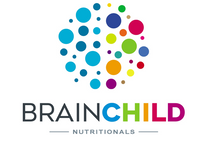How I Helped My Autistic Child's GI Issues
Did you know that physicians diagnose 1 in 54 children in the United States with autism? Did you also know that these children are eight times more likely to deal with gastrointestinal issues than other children?
Understanding how to spot the signs of stomach problems and GI issues in a child with autism is important. Plus, you should understand how to help with these GI issues.
To learn more about the link between autism and GI issues, keep reading. We're going to cover everything you need to know.

Understanding the Link Between Autism and GI Issues
As we said, children with autism are more likely to struggle with gastrointestinal issues. These problems may include the following:
- Chronic constipation
- Abdominal pain
- Gastroesophageal reflux
- Bowel inflammation
- Bloating
- Chronic diarrhea
Interestingly, there is a symptomatic link between autism and the GI tract. A study that reviewed the treatment of GI symptoms found that treating gastrointestinal symptoms may also relieve symptoms of autism spectrum disorders.
Overall, there hasn't been much headway into autism spectrum disorders and what causes the condition. However, studies that examine the relationship between autism spectrum disorders and the GI tract have led to two beliefs regarding the cause of autism spectrum disorders:
- Excess immune activation causes inflammation in the GI tract and contributes to the development of symptoms related to autism spectrum disorders
- The types of gut bacteria present alter the symptoms present
Although, there hasn't been a clear definition for the cause of autism.

Common Causes of Anxiety and Stomach Issues in Autism
There have been a plethora of research studies and hypotheses surrounding stomach issues in autism. However, there are some people who believe in the common sense connections between autism and GI issues.
These 'common sense' connections include examinations of the behaviors associated with autism spectrum disorders.
For example, many children with autism practice selective eating. They only eat a select few foods. Plus, they are more likely to eat processed foods and eat fewer fruits, vegetables, and whole grains.
Due to these eating habits, children with autism have poorer diets and weight-related health problems. This is why adults with autism are at an increased risk of obesity, high blood pressure, and diabetes.
Once a child has become used to selective eating, it's hard to quit the habit. With this, communication deficits make it more difficult to explain the reasons why an adult may be encouraging a variety of foods in the child's diet.
And, communication deficits make it harder to figure out why a child is having gastrointestinal issues. It could be due to their eating habits. But, it could also be due to other issues that the child can't communicate properly.

Signs of Chronic Stomach Issues in Children With Autism
Children with autism may not always express themselves in the same way as children without autism. Because of this, adults around children with autism may need to look for signs of GI problems themselves.
You don't have to follow your child into the bathroom. But, you should have a conversation about their bowel habits if you suspect that something is going on.
Here are some symptoms to look for:
- Constipation
- Diarrhea
- Gas
- Bloating
- Abdominal pain
- Pain while having a bowel movement
- Nausea
- Vomiting
Children with autism may communicate these kinds of feelings differently. For example, they may avoid a certain food if it makes their stomach hurt.

Treating GI Issues in Children With Autism
Just like every child, the goal with children with autism should be to provide enough nutrients in their diet to promote lifelong health. To do this, you should develop a care team that is focused on your child's health:
- The child and his/her family should work with a dietitian that assesses the quality of the child's diet and watches for potential deficiencies
- The care team should speak with the child about food selectivity and explain what could happen as a result of nutrient deficiencies
- The child's care team and family should coach and encourage the child to plan and prepare meals with the family
Both the child's family and the child's care team should work together to make an easy and clear plan for the child to follow. At home, the child's family should help the child understand how to make these decisions on his/her own.
Probiotics for GI Issues
If your child is experiencing gastrointestinal problems, you should consider giving them probiotics. Here at BrainChild, we offer two beneficial probiotics:
- IntestiMend
- Basic Support Probiotic
IntestiMend
IntestiMend is a gastrointestinal support supplement. It contains a range of sulfur-containing ingredients.
A healthy gastrointestinal tract is naturally lined with sulfate. This protects the intestine from a variety of threats. If that sulfate lining becomes compromised, this could cause GI issues.
Therefore, you can build this sulfate lining by taking IntestiMend. This promotes healthy intestinal mucosa and good gastrointestinal function. Plus, it may help lessen food reactions like those with casein and gluten.
The supplement is also great for children with a history of low sulfur/sulfate.
Basic Support Probiotic
The basic support probiotic is a blend of ten certified probiotic strains. We designed this supplement for individuals who require lower amounts of probiotics.
Probiotics help with digestive health. They can help us grow good microorganisms in our gut. In turn, probiotics can help us combat a range of digestive challenges:
- Yeast overgrowth
- Constipation
- Diarrhea
- Parasites
- Bloating
- Indigestion
Taking a basic support probiotic is beneficial for anyone with digestive issues. But, it's especially helpful for children with autism spectrum disorders.
More From BrainChild
Understanding the connection between autism and GI issues is important for supporting any child with autism. The earlier you find chronic stomach issues, the earlier you can prevent habits like picky eating.
If you're looking for more ways to support your child, look no further than BrainChild. Our team has developed a collection for children with autism. We brought together the best of the best for children with autism.
Get started today and start giving your child with autism the care that he/she deserves.







